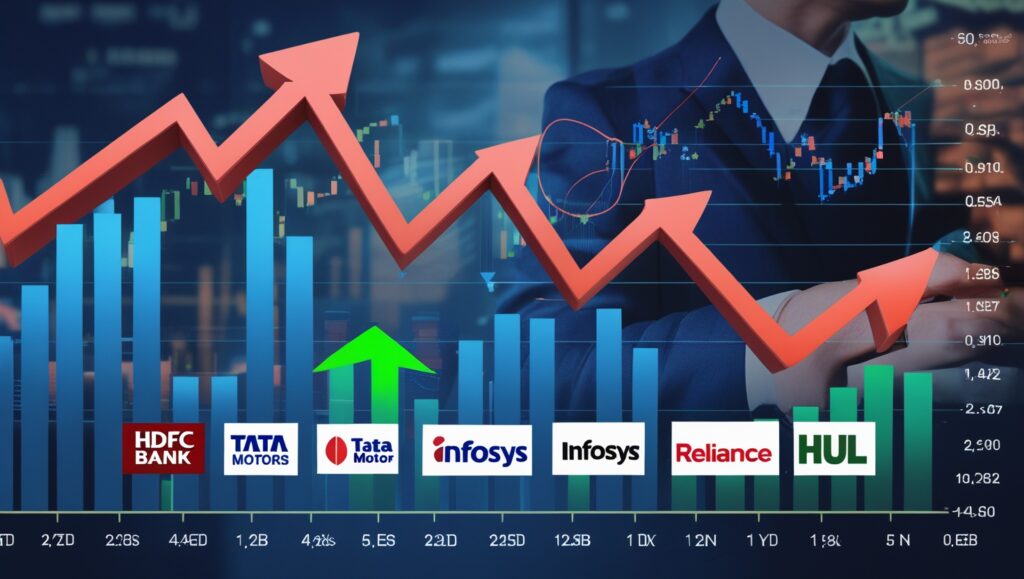Introduction
When it comes to investing, two of the most popular avenues are stock trading and options trading. But the question remains: is one better than the other? Understanding the key differences between these two investment vehicles is crucial for anyone looking to make informed decisions in the financial markets. Whether you’re a seasoned investor or a beginner, this article will guide you through the nuances of options and stocks, helping you determine which might be better suited to your goals.
What is Stock Trading?
Stock trading is the process of buying and selling shares of publicly traded companies. When you purchase a stock, you’re essentially buying a small piece of ownership in that company. The value of your shares can increase or decrease based on the company’s performance, broader market trends, and various other factors.
Stock traders can be categorized into different types based on their investment style. Long-term investors often hold stocks for years, benefiting from the gradual appreciation of their portfolio. On the other hand, day traders might buy and sell stocks within the same day, aiming to capitalize on short-term price movements.
What is Options Trading?
Options trading involves contracts that give you the right, but not the obligation, to buy or sell an underlying asset—usually a stock—at a predetermined price within a specific time frame. There are two main types of options: calls and puts. A call option gives you the right to buy the asset, while a put option gives you the right to sell it.
Options trading is often used by speculators looking to profit from short-term market movements and by hedgers who want to protect their portfolios from potential losses. Unlike stocks, options have expiration dates, adding another layer of complexity to the trading process.
Comparing Risk Levels
Both stock trading and options trading come with their own set of risks. In stock trading, your risk is generally limited to the amount you invested. However, the stock market can be volatile, and prices can fluctuate significantly due to various factors, such as economic data releases, corporate earnings, and geopolitical events.
Options trading, on the other hand, can be riskier. The use of leverage in options can amplify both gains and losses. Additionally, the time-sensitive nature of options contracts means that they can expire worthless if the market doesn’t move in your favor. This makes risk management a critical component of successful options trading.
Potential Returns
When it comes to potential returns, options trading offers higher leverage than stock trading, meaning you can control a larger position with a smaller amount of capital. This leverage can lead to substantial profits if the trade goes in your favor. However, it can also result in significant losses.
Stock trading, while generally offering lower returns compared to options trading, provides a more straightforward path to profits. Investors can benefit from dividends, capital appreciation, and stock splits over time. While the returns might be slower, the risk is often lower compared to options.
Complexity and Learning Curve
Stock trading is generally easier to understand and execute, making it more accessible to beginners. The basic premise of buying low and selling high is simple, although mastering the market requires knowledge, experience, and discipline.
Options trading is considerably more complex. Understanding the various strategies, such as spreads, straddles, and strangles, requires a deeper level of financial education. Additionally, options traders need to be familiar with concepts like implied volatility, the Greeks (Delta, Gamma, Theta, Vega), and the impact of time decay on options pricing.

Market Accessibility
The stock market is highly accessible, with numerous platforms offering user-friendly interfaces for buying and selling shares. Most people can start trading stocks with a relatively small amount of capital and can choose from thousands of companies across various sectors.
Options trading is also accessible but often requires a higher level of approval from brokerage firms. This is because of the higher risk associated with options. Additionally, options trading usually involves higher fees and margin requirements, making it less accessible to small investors.
Flexibility and Strategy
Stock trading offers limited flexibility in terms of strategy. You can buy, hold, or sell shares, but your success largely depends on the market’s direction. However, the simplicity of stock trading is appealing to many investors who prefer a more straightforward approach.
Options trading, by contrast, offers a wide range of strategies that can be tailored to various market conditions. Whether the market is rising, falling, or moving sideways, there is likely an options strategy that can be profitable. This flexibility is one of the reasons why experienced traders often prefer options over stocks.
Time Commitment
Stock trading can be as time-intensive as you want it to be. Long-term investors might only check their portfolios occasionally, while day traders may spend hours each day analyzing charts and placing trades.
Options trading, however, typically requires more active management. Because options have expiration dates, traders need to monitor their positions closely and make decisions quickly. This can be demanding, especially for those with full-time jobs or other commitments.
Tax Implications
Taxation is another important factor to consider when choosing between stocks and options. In most countries, long-term stock investments are taxed at a lower rate than short-term trades. Dividends received from stocks may also be eligible for favorable tax treatment.
Options trading, on the other hand, can be more complicated from a tax perspective. Profits from options trades are generally considered short-term gains and are taxed at a higher rate. Additionally, certain options strategies may trigger specific tax rules, such as the wash sale rule, which can affect your overall tax liability.
Use of Leverage
Leverage is a double-edged sword in both stock and options trading. In stock trading, leverage is typically used through margin accounts, allowing traders to borrow money to buy more shares than they could with their own capital. While this can amplify gains, it also increases the potential for losses.
In options trading, leverage is inherent in the contracts themselves. A relatively small investment can control a large position in the underlying asset. While this can lead to significant profits, it also means that losses can exceed the initial investment, especially in cases where the market moves against your position.
Liquidity and Market Dynamics
Liquidity refers to how easily an asset can be bought or sold in the market without affecting its price. The stock market is generally very liquid, especially for large-cap stocks. This makes it easier to enter and exit positions quickly.
The options market, while also liquid, can have less liquidity compared to stocks, particularly for less popular options contracts. This can result in wider bid-ask spreads, making it more expensive to enter and exit trades. Additionally, the market dynamics in options trading are more complex due to factors like time decay and volatility.
Psychological Factors
Trading, whether in stocks or options, is as much about psychology as it is about strategy. Stock traders often deal with the fear of missing out (FOMO) or the panic of a market downturn. Staying disciplined and sticking to a trading plan is essential for success.
Options trading can be even more psychologically challenging due to the higher stakes and the added pressure of time. The potential for rapid gains or losses can lead to emotional decision-making, which is often detrimental to long-term success. Traders need to manage their emotions carefully and maintain a clear, rational approach to each trade.
Long-Term vs. Short-Term Focus
Stock trading is often associated with long-term investing, where the goal is to build wealth over time through the appreciation of share prices and dividends. This approach aligns well with retirement planning and other long-term financial goals.
Options trading, however, is typically more short-term in nature. Traders often use options to capitalize on specific market events or short-term price movements. While options can be used for long-term strategies, such as covered calls, they are generally seen as tools for achieving quicker, more targeted gains.
Conclusion
So, is options trading better than stocks? The answer depends on your individual financial goals, risk tolerance, and level of experience. Stocks offer a more straightforward and less risky path to building wealth over the long term, making them ideal for most investors. Options, on the other hand, provide greater flexibility and the potential for higher returns, but with increased complexity and risk.
If you’re a beginner, starting with stocks might be the best approach. As you gain more experience and understanding of the markets, you can explore options trading to enhance your portfolio and take advantage of different market conditions.
FAQs
- What is the main difference between options and stocks?
- The main difference is that stocks represent ownership in a company, while options are contracts that give you the right to buy or sell an asset at a predetermined price.
- Is options trading riskier than stock trading?
- Yes, options trading is generally riskier due to the use of leverage and the time-sensitive nature of options contracts.
- Can you lose more money with options than stocks?
- Yes, it’s possible to lose more money with options, especially if you’re using leverage or complex strategies that expose you to significant risk.
- What type of investor should consider options trading?
- Options trading is best suited for experienced investors who understand the risks and have the time to manage their trades actively.
- Is it better to start with stocks or options?
- It’s generally better to start with stocks, as they are easier to understand and carry less risk. Once you’re comfortable with stock trading, you can consider exploring options.



